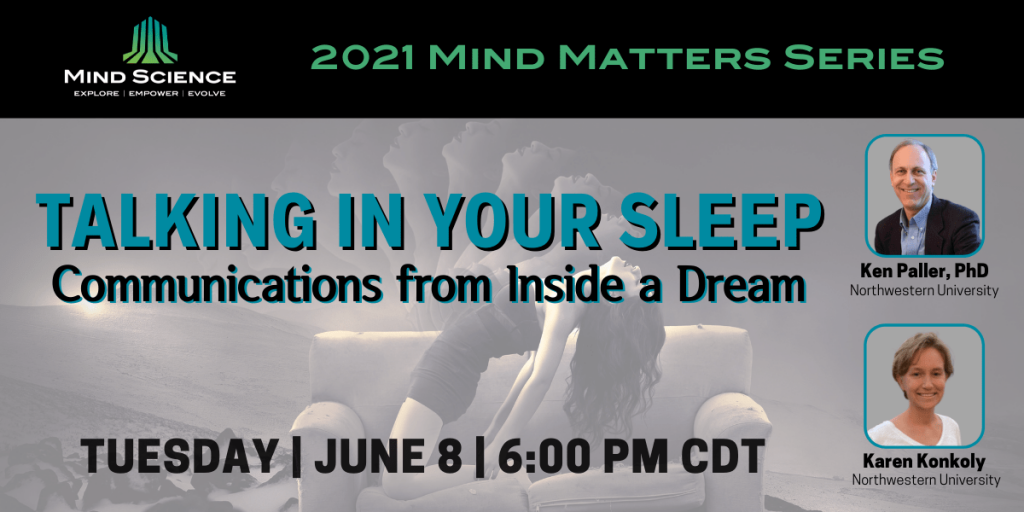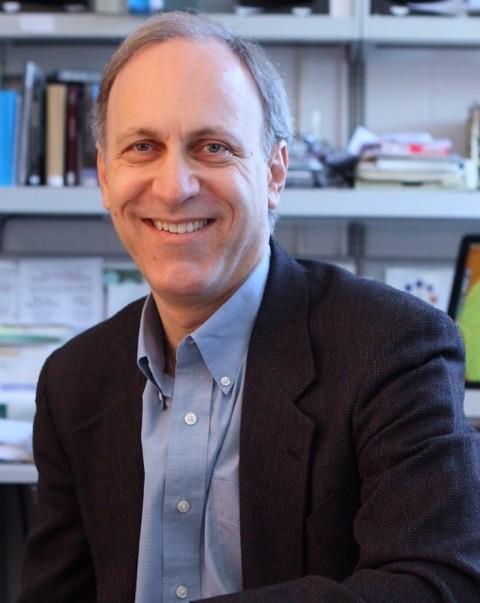
Talking in Your Sleep: Communications from Inside a Dream
Tuesday, 8 June, 2021 6:00 pmOnline (Zoom, register below)
Mind Science-funded research on two-way communication with lucid dreamers has produced groundbreaking results as Ken Paller, PhD (Northwestern University) and graduate student Karen Konkoly have for the first time established two-way communication with someone in a lucid dream state. This groundbreaking knowledge could help people cope with recurring nightmares and anxiety, improve skills, and solve problems. Join Dr. Paller, our 2018 BrainStorm finalist and Karen Konkoly as they provide an update on discoveries they have made in Dr. Paller’s lab about lucid dreaming, based on findings in their recently published paper that has amassed national attention. Dr. Paller and Ms. Konkoly will also reveal how their lab team is using new methods to induce lucid dreams, learn about dream experiences, and modify dream content.

Ken Paller, PhD
Ken Paller, PhD is a Professor at Northwestern University, which is located in Evanston, Illinois. There, he holds the James Padilla Chair in Arts & Sciences and also serves as Director of the Training Program in the Neuroscience of Human Cognition. He was born and raised in Los Angeles. He went to college at UCLA and the University of Kent at Canterbury, UK. He received a PhD in Neurosciences from UC San Diego. He completed postdoctoral training at Yale, Manchester UK, and UC Berkeley. He is a Fellow of the Association for Psychological Science, the Mind and Life Institute, and was awarded the Senator Mark Hatfield Award from the Alzheimer’s Association.
Ken’s research has focused on human memory and consciousness, using a variety of methods including electrophysiology, neuropsychology, and neuroimaging. His findings have contributed to understanding features of conscious memory experiences as well as ways in which memory operations differ in the absence of awareness of retrieval, as in implicit-memory priming, intuition, and implicit social bias. Some of his research has concerned patients with memory disorders, including evidence linking memory deficits to poor sleep. Recent studies from his lab showed that memory processing during sleep can reinforce prior learning, providing novel evidence on sleep’s role in memory. Investigations of the relevant physiological mechanisms are helping to elucidate the hidden but critical contributions of sleep to cognitive abilities, including remembering details and solving problems, as well as to well-being more generally.
Ken has published nearly 200 scientific articles, reviews, and book chapters. He co-authored the cover story on Sleep Learning for the November 2018 issue of Scientific American. He has appeared on NPR’s Science Friday, PBS Nova, and CBC’s Quirks and Quarks. Many of his publications are available on his lab website, including one article titled: Do House-Elves Clean Your Brain While You Sleep?
His most recent paper described innovative research on two-way communication during REM sleep. The Mind Science Foundation provided support for this work in 2018, followed by the National Science Foundation in 2019. In this research, the results demonstrated the feasibility of real-time dialogue between an experimenter and someone in the midst of a lucid dream. This project was led by Karen Konkoly, and involved a collaborative effort with three European lab groups. One morning in January, 2019, Karen achieved successful two-way communication with the math problem 8-6. The answer was given during a period of REM sleep by Christopher Mazurek, who later became a member of the lab group. Further applications of this method can probe conscious dream experiences as they happen.
